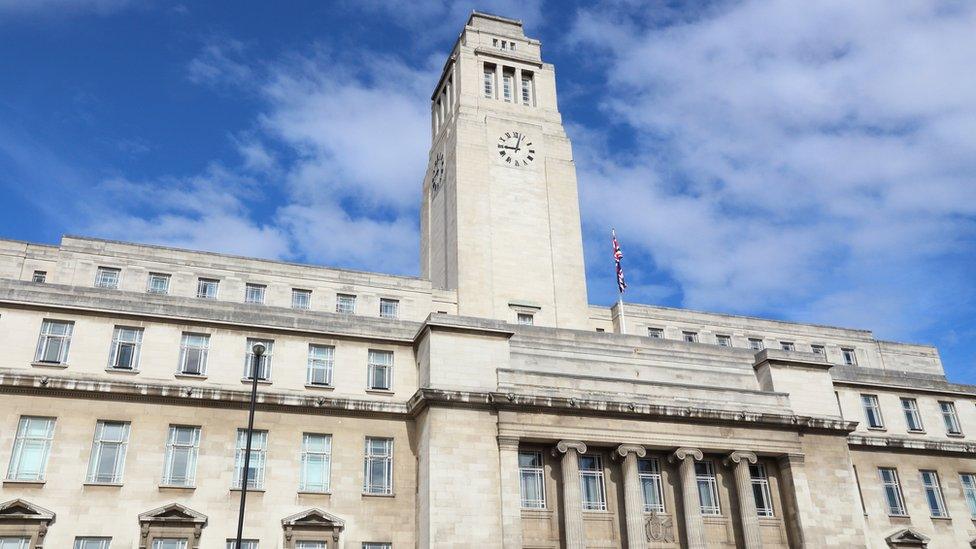Multimillion-pound policing research centre opens
- Published

The centre is a joint project led by the University of Leeds, pictured here, and University of York
A £10m research centre examining how police, authorities and service providers work together has opened in Leeds.
The Vulnerability and Policing Futures Research Centre aims to tackle issues associated with crimes including county lines drugs, abuse and modern slavery.
It is a joint project led by two universities in Leeds and York.
Prof Adam Crawford said data from police and social care providers would be analysed to help vulnerable people.
He said academics would start researching issues in Bradford before focusing on other parts of West Yorkshire.
A spokesperson said the team would study how different services interact and how they could best work together "to prevent harm arising".
They said the research would "help inform improvements in the provision of integrated services for vulnerable individuals, groups and neighbourhoods".

Research would start in Bradford first before moving to Leeds and other areas in Yorkshire
Prof Crawford, who is a co-director of the centre, said it was "incredibly valuable and absolutely crucial if we are going to address the challenges that vulnerable people face and that organisations come up against when trying to respond to these issues".
"It will enable us to identify where the research can be used to improve services and inform how public services from different cities across the country can best work together to improve outcomes for vulnerable people."
Co-Director Prof Charlie Lloyd, from the University of York, said the centre would "offer evidence-based solutions".
"The police are increasingly having to respond to a wide range of social problems involving vulnerable people, such as homelessness and mental health illnesses."
He said police were "not always the most appropriate organisation" to deal with such issues.
Funding for the centre has been provided by the Economic and Social Research Council (ESRC), which is part of UK Research and Innovation (UKRI), a non-departmental public body funded by the Department for Business, Energy and Industrial Strategy (BEIS).

Follow BBC Yorkshire on Facebook, external, Twitter, external and Instagram, external. Send your story ideas to yorkslincs.news@bbc.co.uk, external.